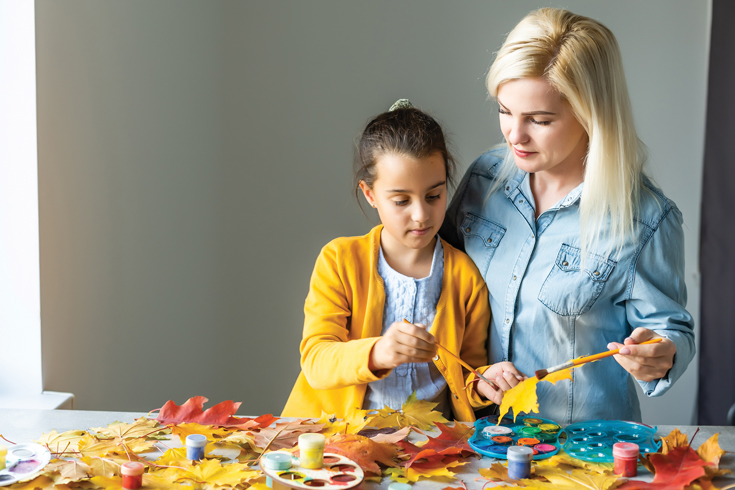Surely, it’s every loving parent’s ultimate goal to raise a successful child – some succeed and some hit obstacles and uncertainty along the way. Is there anything we can do better today that can help pave the way for a successful future for our offspring?
We would love to see our children achieve the best for themselves and grow up to become well adjusted adults, who feel a sense of purpose and fulfillment with their lives. For a long time now, researchers and scientist have been following the actions parents take and the factors they have on their children and the influence it has on their level of success. While the methods may vary depending on a child’s personality, there are some definitive things you can do to make sure your child is better positioned to be a successful adult.
1. Limit screen time
Think about it – children’s brain and eyes are still developing from day to day. Hence, long exposures to television, tablet or cell phone screens can’t possibly be good for them in any way. In fact, if left unchecked, it can have long-term negative consequences on the undeveloped child’s brain.
Prolonged screen time is also found to severely affects children’s attention spans making it way shorter, affecting the way kids learn new things in school. It also stunts their verbal and social skills.
According to the American Academy of Pediatrics the set recommendations for a child’s screen time depending on age go as follows:
- 18 months and younger: No screen time at all, except for video chatting.
- 18-24 months: Parents who choose to introduce digital media should choose high-quality programming. You should also watch it with your children to help them understand what they’re seeing.
- 2 to 5 years: Limit screen use to 1 hour per day of high-quality programmes. Parents should co-view media with children to help them understand what they are seeing and apply it to the world around them.
- 6 and older: Place consistent limits on the time spent using media, and the types of media, and make sure media does not take the place of adequate sleep, physical activity and other behaviors essential to health.
- They also ask that you designate media-free times together. This can be things such as dinner or driving, as well as media-free locations at home, such as bedrooms.
2. Read to your kid
This makes perfect sense, but unfortunately, it’s a dying thing in our modern, hectic world where everything to do with early education is left to centres and playschools. If you make the effort however, you’ll find that other than the sweet bliss of cuddling up with your young child and taking them on a literary adventure, reading to them regularly and consistently from a young age has been scientifically proven to give them a lasting literacy boost with obvious lifelong benefits.
Reading to young children has also been proven to provide lasting verbal skills and help with problem solving skills as well. While any kind of age-appropriate material will do for reading sessions, reading stuff that they themselves enjoy is definitely a good idea!
3. Get to know your child’s passions (and encourage them)
It’s not unusual these days to ‘discover’ a child’s talent while he or she is attending an enrichment class of some sort. The good thing about it though, this hidden talent will only be seen and felt if you yourself take on a proactive part in your child’s life and ‘fan the flames’ in this passion of his/hers. In other words, don’t just leave it to the teachers. Let your child know that you acknowledge and support their talents and encourage them to pursue it as far as they can.
When it comes to a child’s true passion, beware of this fact: Countless parents seem to just push their children into things they think would be the best for them, even if they don’t like it. That has always been a recipe for future disasters, (read discontentment, resentment, rebelion, etc).
The best thing, really, that any parent can do for their child is to let them see where their own inner passions take them. So, if you’ve dreamt of raising a dancer, and your child seems more interested in botany, for instance, remember this little advice.
4. Allow failures for their own good
Contrary to what a parents naturally may feel, protecting and sheltering a child from failure could be one of the worst things to do, for it’s only through failure that a child can truly grow and learn. In life, remember, there are always problems that need to be solved (there is no such thing as a 100% problem-free life). Failures lead to problem-solving skills that your child needs to develop – and each child has their unique way of seeing things. So, it may hurt to see our child fail at something, it’s one of the best things you can do for them. You can, however, take on a gratifying role in helping them figure out solutions, actions, remedies, etc.
Failures during the childhood growing years also help a child to realize things don’t come easy. If we really want something, we are going to have to change the way we see and do things, and better ourselves.
Failure also humbles them into understanding that they can’t and won’t win all the time and that it’s alright to not be at the top of things each and every time.
5. Teach them about delayed gratification
There are some things in life where parents should not delay taking action and providing relief. such as if a child is thirsty, hungry, needs help in a genuinely urgent matter, etc. However, providing your child instant gratification for every little matter could severely damage their future, for when they’re adults, they will have to cope with unrealistic expectations in life.
Getting accustomed to instant gratification during childhood can desensitize them to instant delivery and rewards, and they begin to expect it without much if not any work. When you teach your child patience and persistence before getting rewarded, it sets them up for more sensible expectations in the future, and they will also be more open to sacrifices and cooperation with other people.
6. Give them chores to do
Getting your kids to do household chores isn’t child labour! Teaching your child responsibility for the environment around them is an important lesson to learn early on. It lets them know that things to don’t just magically get done, and people (mom, dad, relatives, the maid, etc), have to do them, and they have to take part in this too.
They should be educated from young to play an active role in making their surroundings a better place to live in for themselves and those around them. So, let them fold the laundry, sweep the floor, set the dinner table, wash some dishes, bathe the family pet, etc. These chores will serve them well (and yes, the fact that it’ll lighten your own load a little is an added bonus!).
7. Take them travelling
Traveling is one of the most transformative experience for someone to undergo, especially if that someone is a growing, inquisitive child. It opens them up to new cultures and ways of living that varies from their own.
Exposing your child to travel early will expand their consciousness beyond the limitation of any little towns small mindset that one can fall in to.
The Student and Youth Travel Association in the USA once released a survey that analyzed the effects travel has on students. Unsurprisingly, among many beneficial effects, they found that travel helped students increase their curiosity and willingness to learn, explore and grow.
They also concluded that it made students more tolerant and respectful of different people and cultures. So, the next time you plan to use the kid/kids as an excuse not to travel, think twice, for their sake!
Article adapted from: powerfulmind.co




